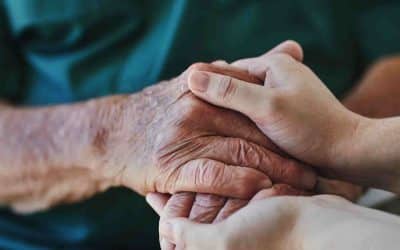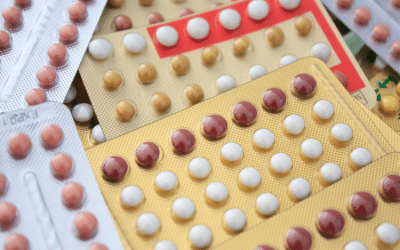To participate in this year’s National Consultations on Bioethics in France, Alliance VITA has requested for people to share their testimonies when facing certain trials in life such as: infertility, disability, illness, bereavement…
In response to VITA’s request at the end of January, these testimonies were published on their website to contribute to the widespread citizen involvement for the National Consultations on Bioethics taking place this year in France.
Just a few days before this National Bioethical Consultation website will be closed to public comments, Alliance VITA has published an online, illustrated collection of the testimonials which they have received hereto date, that will be updated in the coming days.
Each one of these personal stories reminds us, that behind all the topics being discussed, are genuine men and women for whom technology and legislative measures do not respond to their distress. Different subjects are addressed varying from the difficulty conceiving a child, to accompanying someone at the difficult end-of-life period, to hearing the announcement of a handicap,
The reality is much more complex, painful, and necessitates a retrospective journey, that is to say time. And these testimonies invite us all to leap forward in a burst of human solidarity.
“I was pregnant with my first baby who was diagnosed with a serious heart malformation at 6 months … »
Twenty years ago, I was expecting my first child. A serious cardiac malformation was diagnosed at my 6th month of pregnancy. Only two outcomes seemed available: either ending pregnancy for medical reasons or therapeutic obstinancy after my baby’s birth. The pressure I felt from the medical and social services was very strong, in an atmosphere of panic and emergency. My son died at 6 months of pregnancy, from a ‘medically performed abortive procedure”. I felt immeasurable guilt and pain. Even today, I still regret this act. It would have been so much healthier for me if my son was born and died a natural death, where he could have received palliative care if necessary.
Juliette
« If something serious happens to me, I want you to donate everything …»
I am a mother of 3 children: Camille age 20, Pierre age 26, and Alexis, who was 23 years old. Alexis died on May 9, 2015 following an accident when he was chopping wood. Alexis was in a state of brain death. Previously in the winter of 2015, he expressed his desire to be an organ donator following a broadcast the family watched together. His words “if something happens to me, donate everything” have allowed our family to be more serene about his decision for donating. Alexis gave his organs to 6 different people. Afterwards we founded the association “Alexis, an energy for life” (“Al.é.lavie”) in tribute to him and to allow families of organ donors to be heard. Many associations have been founded for people receiving transplants in France, but very few if any for living donors or families of deceased donors. In March 2017, we set up a discussion group in the French region of the Rhône-Alpes, headed by professionals who support relatives of organ donors. We also try to that for this sensitive subject of organ donation every citizen receives better information which is clearly explained in the context of our bioethical laws. In my opinion, the ethical rules for this field must be conceived in collaboration with the medical, associative, political and civil members of society. To contribute, we hope to help families of organ donors express their feelings and opinions.
Catherine
« I can testify to the beauty of the last months of life, which certainly comprise physical and moral suffering, but so much more… »
As a psychologist specialized in palliative care in patients’ homes, I can that I have witnessed and experienced the beauty of individuals’ last months of life, which are both physically and morally painful, but also more fulfilling than imagined! How many families try to exceed what is expected of them? How many families undertake an incredible journey filled with dialogue, introspection, and thinking of others? How many families have gone from “I give up, I can’t continue anymore, let’s finish off with this” to “happily we had these months together; we were able to talk to each other, to address previously topics which had previously been ‘taboo’…And still others: “I didn’t think I was capable of accomplishing that, I feel proud to have accompanied my family member until the end”…
Ombeline
« After 2 to 3 years together, we still were awaiting the birth of our 1st child. »
After 2 or 3 years of married life, we were still were unable to conceive a child, so we investigated causes of infertility. After medical testing without any positive prospects, the doctors proposed an IVF inherent with all the questions and issues related to conserving embryos and the artificial reproduction technique (ART) disassociated from any form of physical and emotional act of love. We were uncomfortable with this proposition which we finally turned down. The doctors were ambivalent about our decision. We then turned to adoption procedures, to especially receive a living child in our home, compared to fabricating a child at any price. Happily, medical techniques continue to evolve! But we must consider that their role is to repair, or to replace cells of pathological tissues, but never to circumvent and modify an organ or a human body, to preserve the natural human condition without trying to liberate its’ state from the respect of its human contingencies.
Carine
« According to his wishes, he died at home with palliative care. »
On September 2nd, my husband expired from cancer contracted 11 years ago when he was 49 years old. He died according to his desires: at home with palliative care. I would like to testify to render homage to the accompaniment by the nurse, the doctor, the healthcare team and my mother which were exceptional for both of them. The end-of-life is very precious in both directions. It’s too important to be deprived of signification, cannot be esteemed to be meaningless, nor ultra-medicalized, abridged artificially, nor trivialized…
Dominique
« At birth, the doctors said that I wouldn’t live…»
I am 56 years old and I was born with a spina bifida. At birth, the doctors said I wouldn’t survive. I was in an incubator for 2 ½ months. Already at a young age, I had to fight for life. The doctors then said that I would have VERY SEVERE disabilities and that my parents should not become attached emotionally. At 2 ½ years, I started reeducation and finally took my first steps at 6 ½ years old. I live independently despite my great walking difficulties and my complete incontinence (I requested an artificial bladder at age 10). I have worked non-stop for almost 32 years. I LOVE Life and I defend it. I deplore and scream that no one speaks out for others No one has the right to say that a child won’t be happy in life just because he is disabled. An autonomous individual cannot imagine how it is to be disabled. Today, most children who are diagnosed with spina bifida are aborted and are never born. I have the right to say that I survived. I agree with medical research to improve the lives of people with disabilities, for cures, to heal them.
Claire



